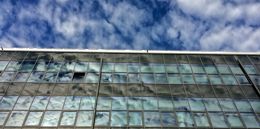CeBiTec Colloquium
Monday, April 3rd 2017, 17 c.t.
G2-104, CeBiTec Building
Dr. Ingo Appelhagen
Department of Metabolic Biology, John Innes Centre, Norwich (UK)
Purple factories: Engineering anthocyanin biosynthesis for large-scale production in plant cell cultures
Even though more than 600 different anthocyanins have been identified in plants, only a few are commercially available. To obtain stable sources of natural colourants, we have developed suspension cultures from tobacco plants constitutively expressing the MYB Rosea1 and bHLH Delila transcription factors from Antirrhinum majus together with enzymes for anthocyanin decorations. These cultures produce exceptionally high levels of anthocyanins. In contrast to conventional cultures generated from non-transgenic anthocyanin-rich tissues, anthocyanin production in our cultures can be maintained stably by selecting with antibiotics to prevent silencing of the transgenes. This approach allows scale-up in bioreactors and a robust constitutive year-around production under controlled conditions. Moreover we identified a MATE transporter for vacuolar accumulation of anthocyanins. We analysed the vacuolar targeting mechanism of the transporter and produced a modified transporter that localises to the plasma membrane rather than to the tonoplast. Our objective is to use engineered transporters to generate cell cultures production systems, which excrete anthocyanins into the medium, for a simpler product recovery and more sustainable and continuous anthocyanin production systems.
Keywords: Metabolic engineering, plant cell culture, vacuolar transport, microautophagy, anthocyanic vacuolar inclusion (AVI).
Keywords: Metabolic engineering, plant cell culture, vacuolar transport, microautophagy, anthocyanic vacuolar inclusion (AVI).
Host: Prof. Dr. Bernd Weisshaar



